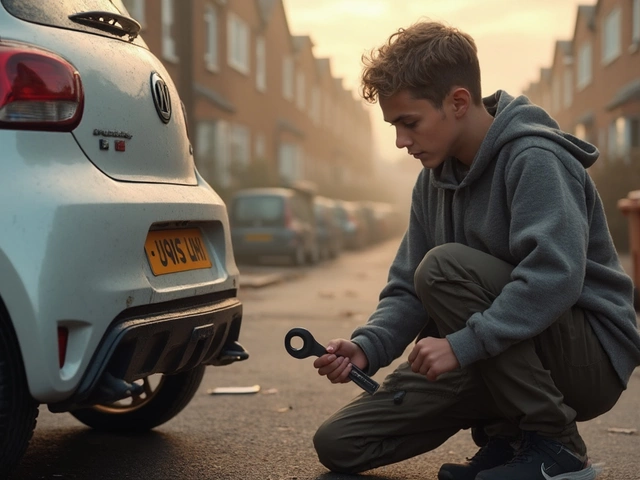Vehicle Health – Simple Tips to Keep Your Car in Top Shape
If you want your car to feel fine day after day, you need to look after the things that matter most. Small checks can stop big problems, save money and keep you safe. Below you’ll find quick, practical advice on the most common parts drivers worry about, from air filters to suspension.
Check Your Engine Essentials
Air filters keep dust out of the engine. A cheap paper filter works fine for most drivers, but if you drive on dusty roads a higher‑grade filter can protect the engine longer. Swap it when the manual says, usually every 12‑15 000 miles, or sooner if you notice a loss of power.
Spark plugs spark the fuel‑air mix. Worn plugs cause rough idling, sluggish acceleration and higher fuel use. Look for fouling, cracked insulators or a burnt smell. Most plugs last 30‑50 000 miles; replace them when you see mis‑fires or the check‑engine light comes on.
The fuel pump pushes fuel to the engine. If the car stalls, hesitates on acceleration or takes longer to start, the pump might be failing. You can test pressure with a gauge or listen for a whining noise. Replacing a bad pump before it quits can avoid a roadside breakdown.
Brakes, Clutches, and Suspension
Brake pads wear unevenly. Changing only the rear pads is okay if the front pads are still thick, but most mechanics recommend changing both sets together for balanced braking. Listen for squeal or feel a soft pedal – those are signs to check them.
A slipping clutch, burning smell or grinding when you shift means it’s time to act. Driving with a bad clutch can damage the transmission. If you notice a burnt odor, give yourself extra stopping distance and plan a replacement soon.The suspension holds the car steady. Bent or damaged parts, like a broken shock absorber, make the ride feel bouncy and can affect steering. Driving with a bent suspension is dangerous – you’ll lose control on corners and the tyres wear unevenly. If you hear clunks or the car leans too much, get it inspected.
Shock absorbers (or “shocks”) wear out over time. Bad shocks cause excessive bouncing and longer stopping distances, especially in wet weather. Look for fluid leaks on the shock body or a feeling of “floaty” handling. Replacing them restores comfort and safety.
Alloy wheels look great but can corrode if the finish is damaged. Keep them clean, dry and apply a protective coating if you see scratches. This helps prevent rust that can spread to the wheel rim.
Windscreen wipers are simple but vital. Using them correctly – turning them off before a wash, cleaning the rubber regularly – keeps visibility clear. Replace both blades together for even wear and better performance.
Finally, don’t forget the tyres. Check pressure monthly, look for cuts or sidewall bulges, and rotate them every 6‑8 000 miles. Proper tyre care improves fuel efficiency and reduces the risk of a blowout.
Keeping your vehicle healthy isn’t rocket science. A quick visual check, a few minutes of listening, and following the service intervals in your owner’s manual go a long way. Stay on top of these basics and you’ll spend less time in the garage and more time enjoying the road.
 14 January 2025
14 January 2025
What Happens to Your Car When It Runs Out of Engine Oil?
When a car runs out of oil, it can lead to severe engine damage and costly repairs. Engine oil is essential for lubricating moving parts, reducing wear, and maintaining a car's performance. Understanding the signs of low engine oil and the importance of regular oil changes can prevent issues. This article explores the symptoms of oil depletion, the consequences on engine components, and practical tips for maintaining optimal oil levels.
Latest Posts
-

Is MERV 13 the Right Choice for Your Home Air Filter?
-

Can a Fuel Pump Be Bad and Still Work? Signs You're Driving on a Dying Pump
-

Car Suspension Parts: What They Are and Why They Matter
-

Engine Oil Balance: Too Much or Too Little - What's Best?
-

Will Muffler Delete Hurt Engine? Real Facts You Need to Know
Tags
- car maintenance
- engine oil
- spark plugs
- brake pads
- engine performance
- vehicle maintenance
- spark plug replacement
- windshield wipers
- fuel pump
- suspension parts
- clutch replacement
- oil change
- clutch kit
- car suspension
- car performance
- air filters
- car radiator
- exhaust systems
- fuel pump replacement
- engine misfire

0